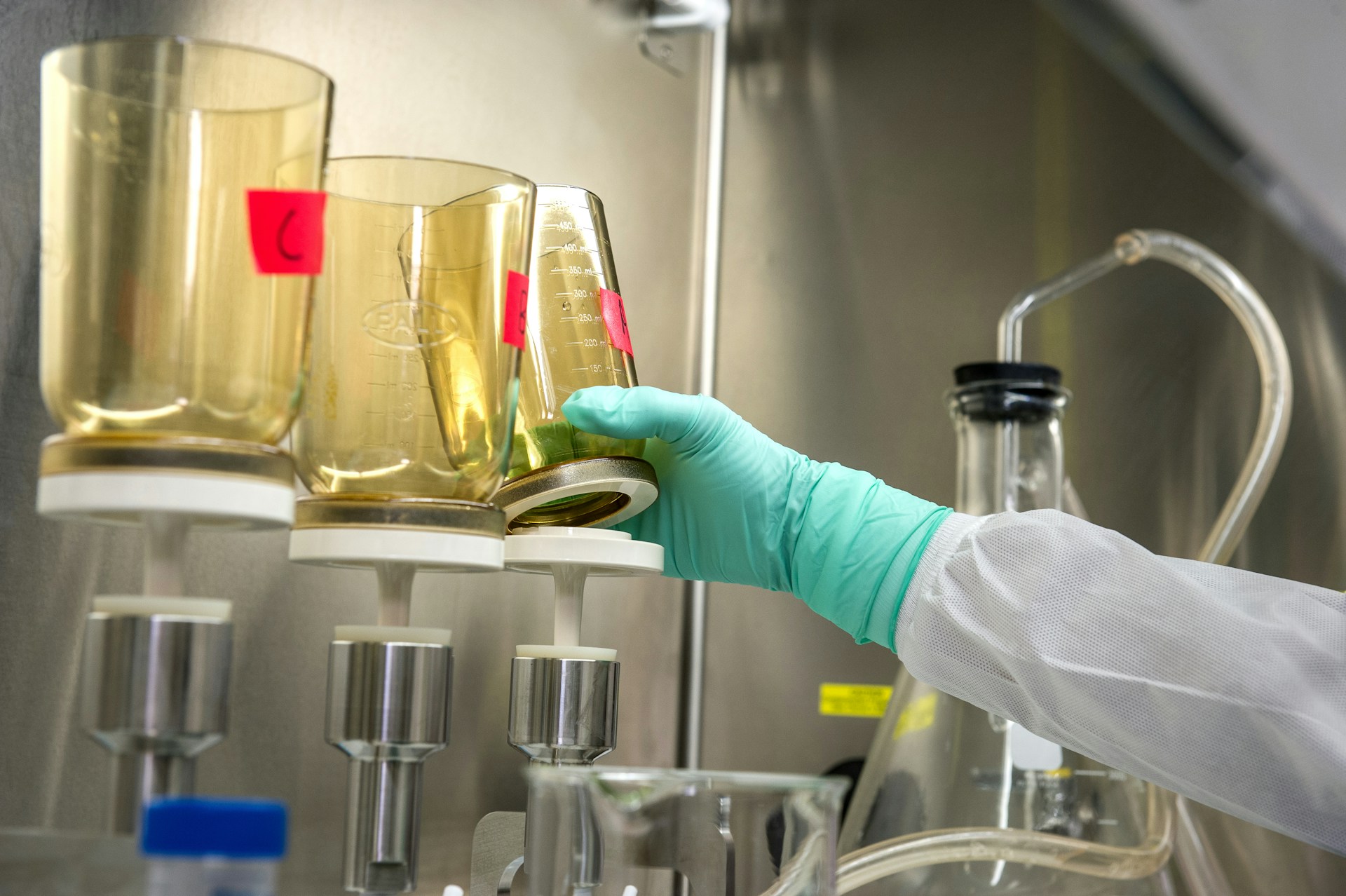Biotech
Metex Marks Another Failure for Industrial Biotech
The Metex Nøøvistago factory has been saved by the Avril group, but the initial biotech project to develop new chemical processes has been abandoned, marking a significant setback for industrial biotech. Numerous industrial biotech companies, including Metex, have struggled to industrialize their processes, but there remains hope for future success with other companies like Afyren.

The industrial facilities of Metex Explorer and the vast majority of jobs have been saved. However, the company’s initial project to develop a portfolio of chemical specialties produced biotechnologically has been abandoned. This is a bad signal for industrial biotech players aiming to defossilize the chemical sector.
Download the free Born2Invest news app for more of the latest biotech news.
Metex Explorer Facilities and Jobs Saved
“Metex is definitely saved,” declared Roland Lescure on his LinkedIn account on Sunday, July 14, 2024. To be more precise, he should have specified that it was Metex Nøøvistago, the former Ajinomoto factory in Amiens (Sommes). The last lysine producer in Europe, this site in judicial liquidation has been officially taken over by the Avril group after long months of negotiations. “I visited the Amiens site on April 8, to show employees and elected officials the total commitment of the State in finding a buyer. I returned on June 3, when the takeover offer was submitted by the Avril group. I had two essential goals: to preserve jobs and the industrial tool. This has been achieved today,” congratulated the Minister Delegate for Industry and Energy. Avril’s offer, which includes the State through Bpifrance via its industrial project investment fund (SPI), was also built with the support of the Hauts-de-France Region and Amiens Metropole.
Some 315 Metex jobs are saved, along with this historic Amiens factory, which was taken over by Metabolic Explorer in 2021 to allow the industrialization of its new biotech processes. Among its projects was a glycolic acid production process, which will not come to fruition. Avril plans to refocus Amiens’ activities on fermentation amino acids for animal feed, including lysine.
The End of Historical Metex
For purists, ardent defenders of industrial biotech aimed at revisiting synthetic chemistry based on fossil resources, the historical Metex has, in reality, breathed its last. Amiens will never host the new processes developed by its R&D in Saint-Beauzire, Puy-de-Dôme, nor will the Carling site in Moselle, known as Metex Nøøvista. The first industrial platform of Metex was built to produce bio-sourced propanediol and butyric acid using a proprietary process. Also in judicial liquidation, the site found a buyer in early July with the Canadian company Maash. However, Maash is only interested in the infrastructure for producing its specialty, mushroom proteins.
A few dozen researchers based in Saint-Beauzire remain out of work. They protested on June 6 to make their voices heard. Avril could not go as far as taking over all their expertise, as its offer only provided for retaining about forty R&D employees for technical support in amino acid production.
A Series of Failures
Metex joins a long list of industrial biotech players who have stumbled in industrializing their processes. These include the American Myriant or the Canadian BioAmber, succinic acid players, the American Amyris with its farnesene, its compatriot Green Biologics focusing on acetone and 1-butanol, and the French Deinove. The synthetic biology giant, American Ginkgo Bioworks, specializing in modifying microorganisms used in the fermentation phase, has seen its stock price plummet by more than 80% since January, reflecting the difficulties of cell reprogramming for industrial purposes.
In France, we now look to Afyren to pick up where Metex left off, whose Carling organic acid production facility is slowly ramping up, Global Bioenergies, which is on the brink of industrializing its isobutene, and Abolis, our national Ginkgo Bioworks, wishing them better chances of success. One thing is certain: despite the failures, they must absolutely persevere because their technology promises bio-sourced chemical specialties production, more environmentally friendly. This is a crucial link to entering a defossilized world.
__
(Featured image by CDC via Unsplash)
DISCLAIMER: This article was written by a third party contributor and does not reflect the opinion of Born2Invest, its management, staff or its associates. Please review our disclaimer for more information.
This article may include forward-looking statements. These forward-looking statements generally are identified by the words “believe,” “project,” “estimate,” “become,” “plan,” “will,” and similar expressions. These forward-looking statements involve known and unknown risks as well as uncertainties, including those discussed in the following cautionary statements and elsewhere in this article and on this site. Although the Company may believe that its expectations are based on reasonable assumptions, the actual results that the Company may achieve may differ materially from any forward-looking statements, which reflect the opinions of the management of the Company only as of the date hereof. Additionally, please make sure to read these important disclosures.
First published in Usine Nouvelle. A third-party contributor translated and adapted the article from the original. In case of discrepancy, the original will prevail.
Although we made reasonable efforts to provide accurate translations, some parts may be incorrect. Born2Invest assumes no responsibility for errors, omissions or ambiguities in the translations provided on this website. Any person or entity relying on translated content does so at their own risk. Born2Invest is not responsible for losses caused by such reliance on the accuracy or reliability of translated information. If you wish to report an error or inaccuracy in the translation, we encourage you to contact us

-

 Crypto2 weeks ago
Crypto2 weeks agoBitcoin Steady Near $68K as ETF Outflows and Institutional Moves Shape Crypto Markets
-

 Crypto2 days ago
Crypto2 days agoMiddle East Tensions Shake Crypto as Bitcoin and Ethereum Slip
-

 Business1 week ago
Business1 week agoDow Jones Stalls Near Record Highs as Inflation-Fueled Rally Awaits Next Move
-

 Fintech6 days ago
Fintech6 days agoFirst Regulated Blockchain Stock Trade Launches in the United States

























